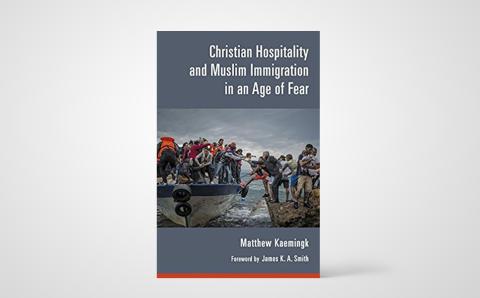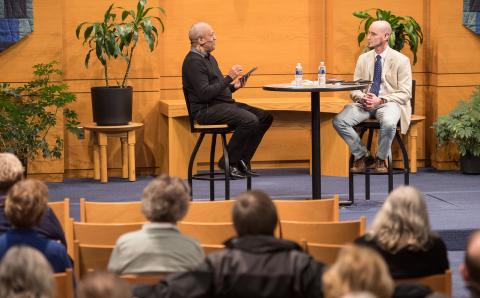When the Council of Delegates of the Christian Reformed Church met in February in Grand Rapids, Mich., high on its agenda was the topic of ministry priorities. But that conversation was framed by budget realities: the ministry shares rate (money from congregations to support mutual ministry) has been frozen by synod since 2015. The staff salary scale has been frozen for the past three years. Congregational Services, the group of ministries that primarily serve congregations, has had its budget reduced by $2 million since 2014/2015.
[Synod is the annual leadership meeting of the Christian Reformed Church. The Council of Delegates meets three times per year to act on behalf of synod when synod is not in session.]
When Synod 2016 declined to grant a ministry shares increase recommended by what was then the Board of Trustees, it mandated the board (through staff) to list and prioritize all the existing denominational ministries, with the goal of reducing the denominational footprint.
The same synod affirmed the ministry shares system as the most efficient in raising the needed funds. It also asked the board to “reimagine” the ministry shares system.
Everything Is a Ministry Priority
The denominational staff followed instructions, producing a detailed chart of all the denominational ministries, which was subsequently presented to Synod 2017. It conducted surveys and discussions before and during that synod to determine which ministries were considered a priority by church members and presented that report to the council last week. Among the many findings are the following observations:
-
There are really no ministries that significant portions of the CRC identify as lacking priority.There is a lot of overlap between the various work of the agencies, which perhaps reflects a need to merge the work of various groups and then find a way to prioritize within each agency.
- The high value of education, including Calvin College ... this says that we prioritize faith formation for our upcoming generations.
-
No one is willing to say a specific ministry should be scaled back or discontinued.
-
Young people were much more interested in matters of social justice; older folks were more interested in the established ministries (e.g., BTGMI, The Banner).
-
Canadian delegates seem to value the denomination’s work more [than U.S. delegates].
The council received the report from staff and will recommend that Synod 2018 “instruct the Council of Delegates to continue to be attentive to possibilities for combining program functions and infrastructure.” The council instructed the executive director to “find ways to significantly curtail physical plant costs in Grand Rapids through exploring alternatives such as (a) alternative energy sources, (b) renting existing space to other nonprofits, (c) encourage remote/home office work, (d) significant reductions of building square footage, and the like and to provide a report and recommendations to the COD (and potentially Synod) by October, 2018.”
Budget Reality
Even as those surveyed want to keep all the ministries, and even as the council and staff work toward reducing expenses, the amount churches are paying toward shared ministry continues to decrease.
Council delegate Don Draayer expressed his frustration with the situation. “Cut, but don’t cut, reduce the footprint, but keep doing more,” he said of the work being asked of the council. “Our people have become disconnected from where the money is going.”
The CRC’s director of finance and operations, John Bolt, told The Banner that the total requested ministry shares from the churches is approximately $38 million. That would be the amount received if every church gave $339.48 per adult member, as asked. The reality is that only $22.9 million was received in fiscal 2017, just under 60 percent of the requested amount.
Budget planning for the coming year assumes $22.2 million in ministry shares income.
On the bright side, Bolt reported that in the current fiscal year, ministry shares income is running above budget and above the same period last year.
Congregational Services Hard-Hit
Hardest hit are the ministries in the Congregational Services cluster. These are the ministries primarily directed toward congregations, including Safe Church, Faith Formation, Worship Ministries, Race Relations, Office of Social Justice, Pastor Church Resources, and the like.
Colin Watson noted for delegates, “We have reduced the annual expenditures for this group of ministries by about $2 million since 2014-15.” These ministries are almost entirely dependent on ministry shares dollars. In the current year, the budget has a shortfall of $450,000.
Ministry Shares Increase Coming?
Budgets for fiscal year 2019 are in preliminary stages, but one item under consideration is an increase of $7 to the ministry shares amount to support Congregational Services in the long term. A special fundraising effort is being made to support those ministries in the short term.
About the Author
Gayla Postma retired as news editor for The Banner in 2020.








